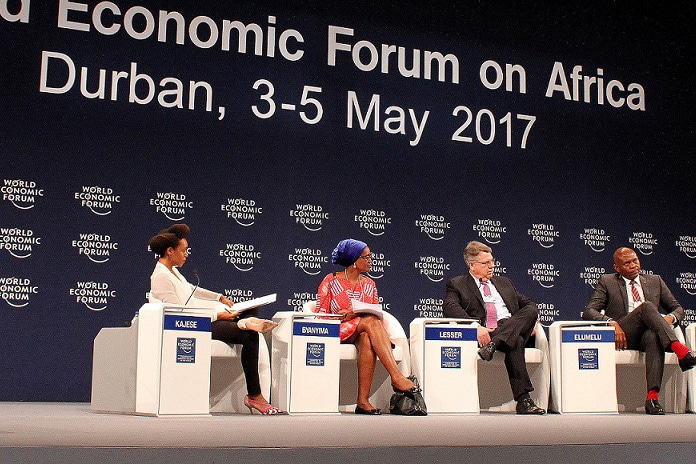Transcript
BUSINESS DAY: You couldn’t turn on a TV, flip open a newspaper or browse social media last week without someone mentioning the World Economic Forum (WEF), which took place in Durban. But activists say that the meetings only cater to the interests of the ruling elite and communities are left out in the cold. Joining us to discuss this further is Wits professor Patrick Bond.
Patrick … you were in Durban last week. I don’t know if you’re inside the Forum or outside the Forum but it certainly does draw attention, and it draws the attention of civil society, even if they’re not included in those conversations?
PATRICK BOND: And yet they were in a sense a co-chair. One of five was Winnie Byanyima, who is the head of Oxfam International. And I mean I did go in, it was very interesting to have a debate. Does the entry of both the progressive, redistributive, democratic and anticorruption voice actually give legitimacy to a group that I think bent over too far to help Jacob Zuma and Malusi Gigaba, and the rest of the, let’s put it frankly, the tyrants: King Mswati, Robert Mugabe, Yoweri Museveni, Edgar Lungu from Zambia, who has put his opposition leader into jail recently. These are some of the very most corrupt corporations to do business in Africa and our own parastatals.
I think it was a good strategic question, was the WEF going to empower some of these forces? I want to just even use the word Zupta, to give you a sense of that choice or was it going to disempower them? And in January, when Pravin Gordhan, then finance minister with Cyril Ramaphosa led the team to Davos, Jacob Zuma stepped back, he wasn’t there and you felt in that Davos scene a bit of disapproval of what was happening. Here in Durban, I felt the WEF had bent over too far backwards to re-legitimate our ruling group. It’s not so good.
BDTV: So overall and more directly what do you think SA’s appearance and dialogue at the WEF Africa has worked to achieve?
PB: I think it achieved Malusi Gigaba’s maturing and there was widespread applause, a few tough questions and Jacob Zuma in his populist way parried them off. But if you look forward what really was at stake was whether SA could claim to lead Africa into world business and the critical process this year is the Group of 20 (G-20) hosted by Germany in which there’s a new compact with Africa. That compact has been designed by their finance minister, Wolfgang Schäuble, and Schäuble actually flew to Durban and he spent basically a day-and-a-half, he gave a big talk at the University of KwaZulu-Natal (UKZN) where he threatened Theresa May, saying, “if you think you’re going to have negotiations to handle Brexit, it’s going to be tough”.
But he also made progress in advancing this compact with Africa to find partners and the main partner, Malusi Gigaba. In a month from now they’ll be chairing a big meeting in Berlin to give more credence to the idea that Schäuble and the G-20 can help multinational corporations invest in Africa with more public subsidies — that’s the essence of the compact.

